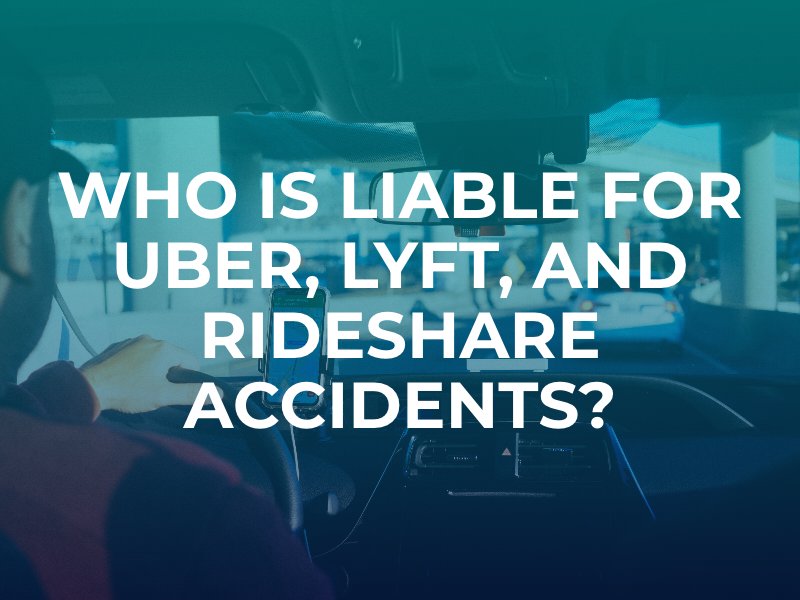Who is Liable for Uber, Lyft, and Rideshare Accidents?
Rideshare services have become incredibly popular over the last decade, but determining liability after an accident involving a rideshare vehicle can be challenging. Here, we want to examine liability issues involving Uber and Lyft, particularly focusing on whether or not the driver or the rideshare company will pay compensation along with how the insurance process works.

Liability is Determined Much Like Any Other Car Accident
Liability after an Uber or Lyft accident is determined just like liability is for any other type of incident. There will be an investigation into the incident in order to gather as much evidence as needed to show what happened. Again, just like any other accident, there may be multiple parties liable for an incident involving a rideshare vehicle. In fact, the rideshare driver does not necessarily have to be responsible. Another driver could hold liability for an accident involving these vehicles.
After an accident involving a rideshare vehicle occurs, law enforcement officials will typically come to the scene. Additionally, evidence such as photographs, video surveillance, mobile device data, black box vehicle data, and eyewitness statements may all be used to help determine what happened.
The ultimate goal is to determine fault, whether that is the fault of a rideshare driver or another driver involved. There could be shared fault, where two or more drivers may be held liable, which would play a role in how much compensation victims receive.
Passengers inside of a rideshare vehicle will almost never be liable for the incident. However, the process of recovering compensation could be challenging depending on who is found at fault for the incident.
Insurance Implications of the Rideshare Driver is At-Fault
If the rideshare driver is found to be responsible for causing a crash, Uber and Lyft both have insurance policies that their drivers carry. It is important to understand that the rideshare companies themselves will almost never hold liability for an accident. Uber and Lyft drivers are considered independent contractors, so they are not employees of the company. This typically means that the only way to recover compensation after a rideshare incident is to file an insurance claim against the rideshare driver.
Both Uber and Lyft operate under specific tiers of insurance. If a rideshare driver is not logged into the app to work, their personal insurance carrier will be responsible for paying compensation if they are found to be at fault for an incident.
In the event a rideshare driver was logged into the app when an accident occurred but did not yet have a passenger or was not on the way to pick one up, both Uber and Lyft offer limited liability policies to complement the personal insurance policy of the driver.
Finally, if a rideshare driver is on the way to pick up a passenger or already has a passenger, then both Uber and Lyft offer $1 million liability insurance policies to help cover injury and property damage expenses for others involved.
If you or somebody you care about has been injured in a rideshare accident, we encourage you to reach out to a skilled attorney as soon as possible. An Atlanta rideshare accident lawyer will help you investigate the claim and recover the compensation you are entitled to.